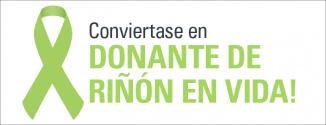If you have an advanced kidney disease and are on the waiting list for a new organ, we strongly encourage you to ask your friends, family and loved ones to be tested to become a living donor. If you are a patient here, start the process by asking them to press the button below and fill out the form:
Living-donor kidney transplants are accomplished when a healthy individual with two functioning kidneys agrees to donate one of their healthy kidneys to someone who is on dialysis or will need dialysis in the very near future. Living donation is a selfless act.
Each year, the number of patients needing kidney transplantation increases while the number of deceased donors has remained about the same. Living donation has been successful because the risk of death or disease to the donor is very low. Donor selection is very important to ensure minimal risk. It is important for the transplant team to evaluate a donor's overall health to provide a safe surgical procedure.
Types of Living-Donor Transplants
Living Related Donors
Individuals who are blood relation to the transplant recipient such as parent, aunt, uncle, brother, sister, nephew, niece, etc.
Living Unrelated Donors
Individuals who are not blood relation to the transplant recipient and may include spouse, friend, neighbor, co-worker, brother-in-law, sister-in-law, etc.
Directed (Anonymous) / Non-Directed (Altruistic) Donors
Individuals who offer to donate a kidney to a transplant recipient on the waiting list. Donors and recipients do not know each other. The donation is made freely and with no expectations of financial gain.
Paired Exchange
An individual wishes to donate to a relative or friend but cannot because of incompatible blood types or cross match. If another pair is found in the same circumstance, an exchange may be possible between the two pairs.
If a living donor is not an option, we also perform deceased-donor kidney transplants.

